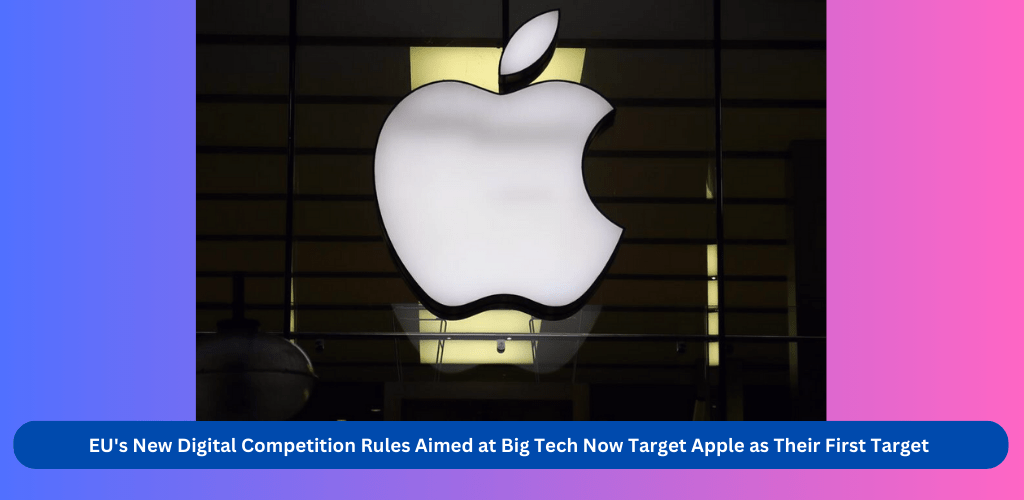Apple's Latest Updates: EU's New Digital Competition Rules Target Tech Giant
Apple's Latest Updates: EU's New Digital Competition Rules Target Tech Giant
 Apple's Latest Updates: EU's New Digital Competition Rules Target Tech Giant Apple latest updates reveal that the European Union (EU) has selected the tech giant as the first focus of its new Digital Markets Act (DMA). This legislation is designed to tackle the dominance of major technology firms, promoting fair competition and protecting consumer rights. The move marks a significant step in the EU's efforts to regulate big tech and ensure a more competitive digital marketplace. Understanding the Digital Markets Act The Digital Markets Act aims to regulate large online platforms that act as "gatekeepers" in the digital economy. These gatekeepers are companies that hold a dominant position, enabling them to control access to critical digital services. The DMA sets out a series of obligations and restrictions intended to prevent these firms from engaging in practices that could stifle competition and innovation. Targeting the Tech Giant Apple most recent update from the EU identifies the company as a gatekeeper, mainly due to its control over the App Store and its extensive ecosystem. The EU's decision to target this company first highlights concerns about specific practices that could harm competition and limit consumer choices. Key Areas of Concern The EU's investigation into Apple latest updates focuses on several crucial areas: App Store Fees: The company charges developers a commission of up to 30% on sales made through its App Store. This high fee has been criticized for creating barriers for smaller developers and potentially leading to higher prices for consumers. In-App Payment System: The tech giant mandates the use of its own in-app payment system for all transactions. This restriction prevents developers from offering alternative, potentially cheaper, payment options to users. Preferential Treatment of Own Apps: The company's practice of giving its own apps an advantage over those from third-party developers is under scrutiny. This self-preferencing can reduce competition and limit the choices available to consumers. Interoperability Restrictions: Limits on how third-party apps can interact with the company's ecosystem are another concern. These restrictions can hinder innovation and reduce the functionality of third-party services. Implications for the Technology Industry The EU's action against the tech giant sends a clear message to the broader tech industry: the era of unchecked dominance by big tech companies may be coming to an end. This move signals the EU's commitment to enforcing the DMA and ensuring that large digital platforms operate fairly. It could prompt other tech giants to reassess their business practices in anticipation of similar regulatory scrutiny. Potential Outcomes The investigation into Apple's most recent update could lead to several significant outcomes: Substantial Fines: If the company is found in violation of the DMA, it could face hefty fines. The EU has the authority to impose penalties of up to 10% of a company's global revenue, which would be a substantial amount. Revised Business Practices: To comply with the DMA, the tech giant may need to make significant changes to its business practices. This could include reducing App Store commissions, allowing alternative payment systems, and providing fairer access to its platform for third-party developers. Industry-Wide Changes: The outcome of this investigation will likely set a precedent for how other tech companies are regulated under the DMA. This could lead to widespread changes across the industry, promoting a more competitive and innovative digital market. Conclusion Apple latest updates regarding the EU's new Digital Markets Act mark a critical moment in the regulation of big tech companies. As the first target of the DMA, the company's business practices and the EU's enforcement actions will have significant implications for the entire technology sector. This development underscores the importance of regulatory measures in maintaining a fair and open digital marketplace, ensuring that consumers benefit from increased competition and innovation. The evolving landscape will require tech giants to adapt, fostering an environment where both consumers and smaller developers can thrive. |
«
Return to OFBiz
|
1 view|%1 views
| Free forum by Nabble | Edit this page |

